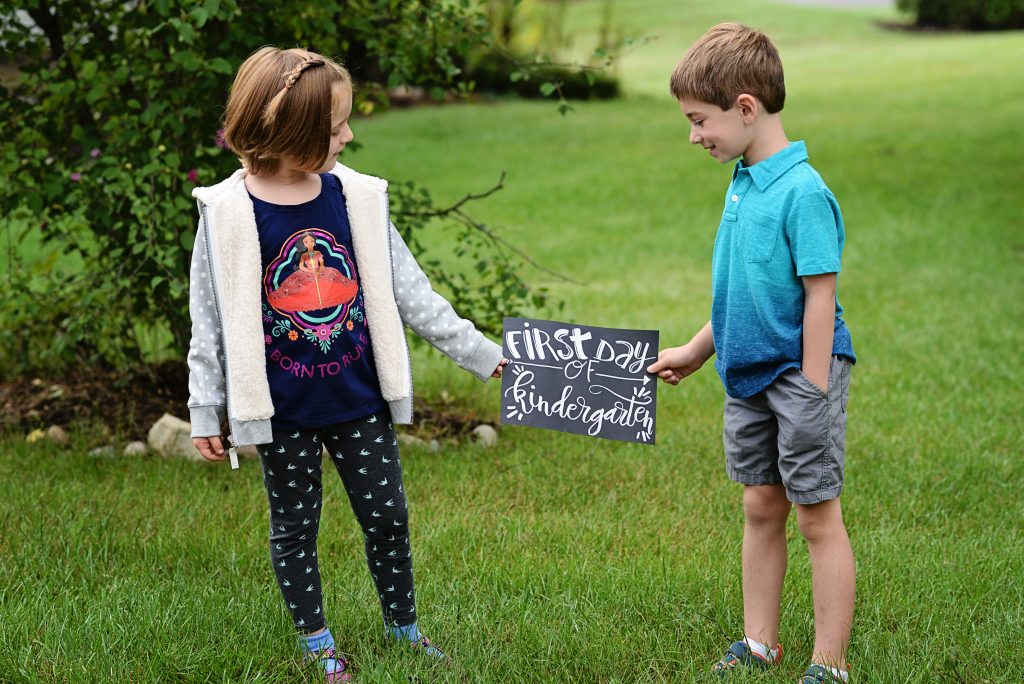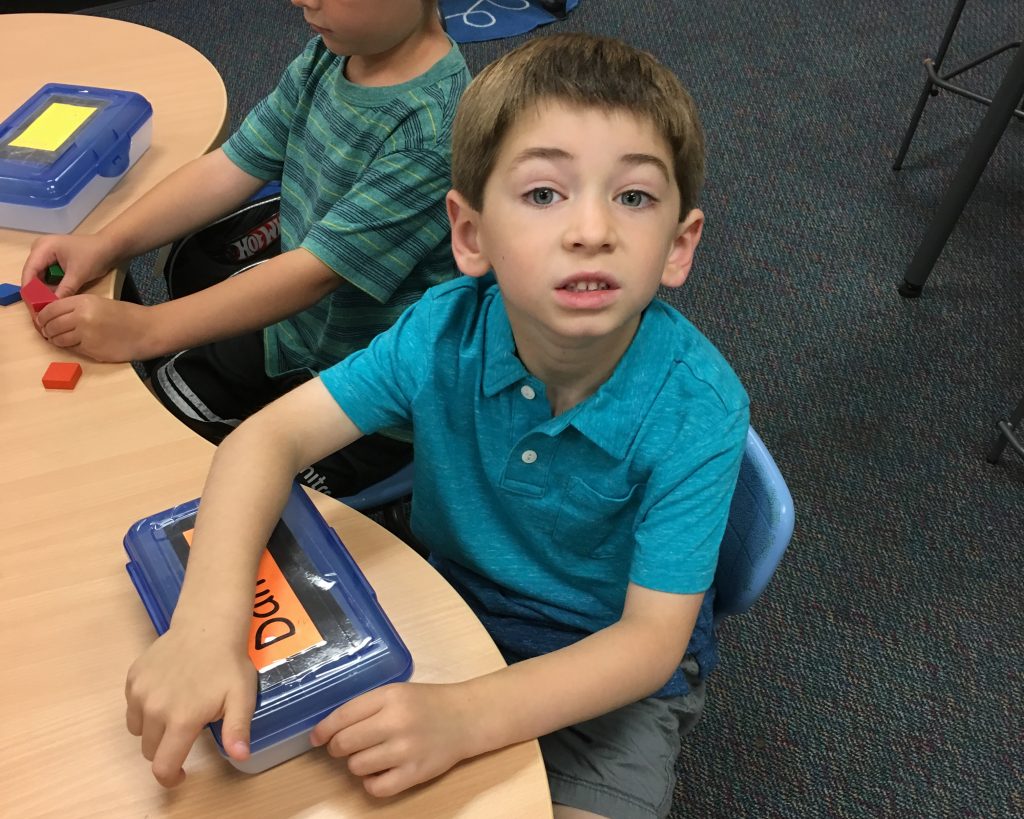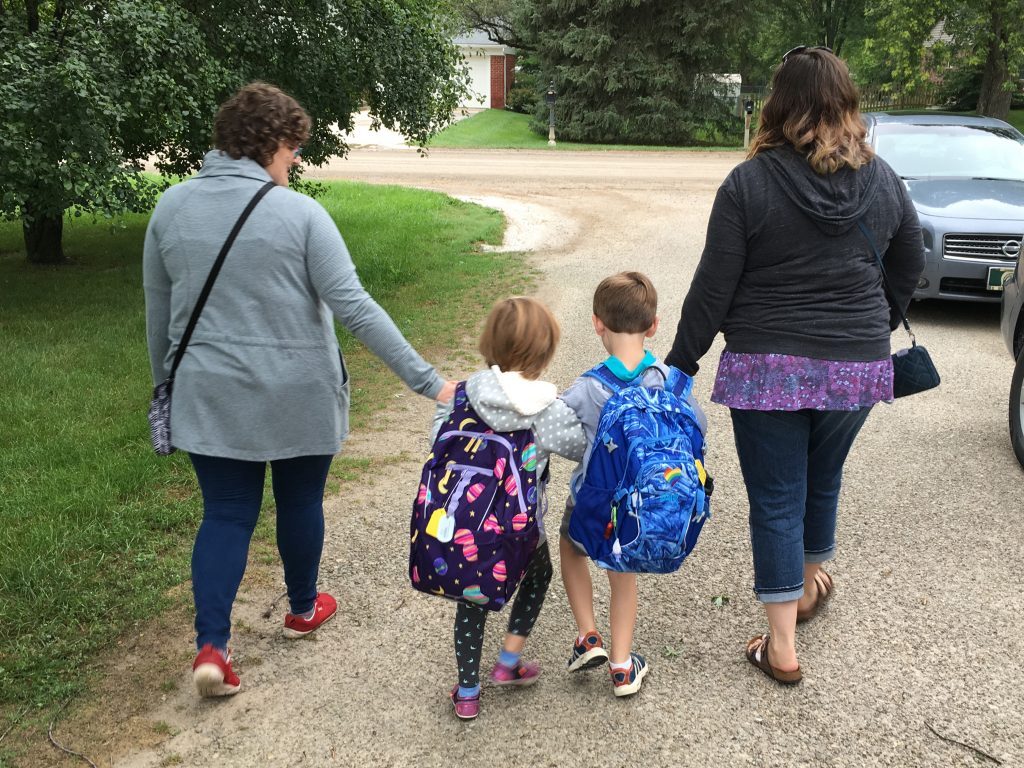August is here, which means the first day of school is looming. For parents of older children, there is definitely excitement for the return of routines and school days. However, for parents of children heading off to kindergarten, the thought of this day can bring feelings of worry and nervousness. Your child will be feeling many emotions as well. As a parent and a former teacher, I wanted to share some tips for transitioning to school.
As I prepared to write this post, I reached out to my teacher friends and asked, “As the new school year starts, what is something you wish all of your classroom parents knew?” I also asked, “What tips do you have for transitioning to kindergarten?” I hope these tips will help kick off the school year on a positive note!

It Takes Time
The first thing you can do to prepare yourself is understanding kindergarten is one long transition that lasts for a whole year. Why is that? Transitioning to school with Kindergarten is so different from preschool. Kindergarten is more rigorous than when we were little ones. Therefore, kindergarteners today will have more time sitting and listening4 and less time playing. Throw in new friends, a new school, a new teacher, and new experiences, and you have an overwhelming experience for little brains.
So what can parents do to help an overwhelmed kindergartener?
- Keep a consistent routine at home. This will help your children have a predictable schedule, which they need to thrive.
- Make sure your child is getting plenty of sleep.
- Have daily check-in chats to discuss your child’s school day and name any emotions they are feeling. This will help to normalize those feelings and will help your child be able to name his/her feelings.
- Spend 15 minutes of one-on-one time with your child (and put the screens away). Let your child choose an activity, and give him/her all of your attention. This will help them feel secure in their bond with you and feel less anxiety about everything else.
- Talk positively about school in front of your child. Reassure them that sometimes big changes take time to get used to.
Despite kindergarten being a transition year, it is also a year of huge growth for your child! Elementary-aged children are sponges, and you will be amazed by everything they learn. Buckle up, and be prepared to enjoy the ride to the best of your ability!

Start Practicing Now
Picture this: It’s the dead of winter, and 20 children need to get winter gear on for recess. There is only one teacher in the room. Sounds stressful, doesn’t it? In kindergarten, children will face a variety of scenarios that they will have to tackle independently. Executive function and self-help skills will make it easier for your child to tackle almost anything that comes their way. While it may save time to zip your child’s coat before rushing out the door, it will not make life any easier for your child once they enter school.
So what can parents do to help a child who might need to improve their executive function and self-help skills? Practice, practice, practice! Let your child know they will have to do a lot of things all by themselves once they are at school, and set aside some time each day to practice these skills. Here are some scenarios you might want to practice before the first day of school:
- Bathroom procedures: flushing a toilet that might be loud, using sinks with sensors, how to use a urinal, what to do if you have an accident, etc.
- How to sit for a story/discussion: visit a library story time for practice.
- How to take turns: play games as a family for practice, model and discuss good sportsmanship when you don’t win.
- Self-help skills: practice zipping coats, putting on shoes, fastening pants, blowing your nose, etc.
- Lunchtime procedures: opening containers, consuming food within a set amount of time, what gets thrown away, what comes home, what to do if you need help at lunch, etc.
Communication is KEY
When I was teaching, I distinctly remember a parent who handled a difficult situation particularly well. Instead of going into mama bear mode, she simply emailed me and said, “Can you tell me more about this situation?” I was floored by her level-headed response and promised myself that when I became a mother I would handle school conflict with such grace.
Fast forward to when my oldest was in kindergarten. I picked him up from school and asked him about his day. When I asked him about lunch, he told me he had not been able to find his lunchbox, so he didn’t eat. I was irate. I imagined a loud and busy lunchroom, bustling with activity, and my boy sitting there with no food in front of him. How did no adult notice? How did no one help him? I jumped into mama bear mode as I fired off a rash email to his teacher. I fumed. And then my phone rang.
As I talked to his kindergarten teacher, I calmed myself down. I thought of the parent all those years ago who had handled a tough situation much better than I had. Then I apologized to my son’s teacher for the email I sent. Finally, I told her I knew better, that I had promised myself I would never react like that, and that I was sorry.
While hard situations are sure to happen while your child is in school, how you react can make a world of difference. How can you keep the lines of communication open with your child’s teacher?
- Keep mama bear under wraps. If a situation arises, instead of sending a scathing email, take a step back and ask, “Can you tell me more about this situation?”
- Remember that teachers are juggling a lot. Give them 24 hours to respond to communications.
- Contact your child’s teacher for more than just problems. Let them know you see the effort they put into their classroom.
- Work with the teacher to solve any problems. Avoid jumping to the principal or superintendent, and keep any issues off of social media.
- A wise teacher once said: “If you don’t believe everything that your child tells you about kindergarten, then we won’t believe everything they tell us about what happens at home.”

A Teacher’s Heart
Through the ups and downs of the school year, there is one constant that is always present. It is the thing that pushed most teachers toward the teaching profession. This is the thing that gets them through tough school days. It’s what makes them tear up when they send their students off to the next grade. What is it?
LOVE.
When I asked my teacher friends what they wished all of their classroom parents knew, of course, they mentioned all of the above items. But one by one, they all said something like this: “More than anything, parents need to know that I will love your child and want them to succeed.” It can be hard to send your baby off to kindergarten. Teaching is 100% a work of heart, and you need to know that your child will remain in their teacher’s hearts forever.










